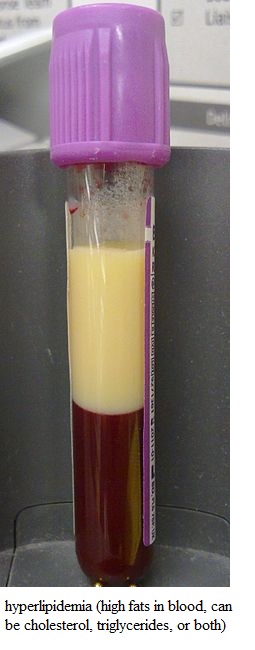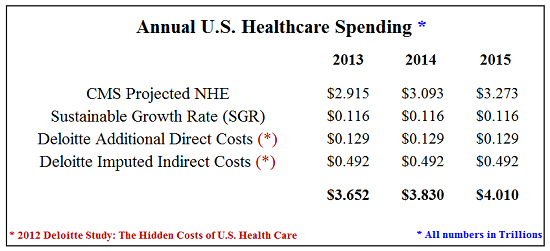A Fatal Accident Waiting to Happen: U.S. Healthcare
October 19, 2015
U.S. healthcare isn't just an historical accident--it is a fatal accident waiting to happen.
Many of the systems we take for granted are historical accidents. Either based on legacy systems hundreds of years old (higher education) or assembled in a short-term, ad hoc fashion (post-1940 national defense/ national security), these systems have expanded into vast patronage systems that are completely out of touch with 21st century needs, costs or realities.
The U.S. healthcare system was not planned; it is largely accidental.

As Jeff Deist of the Mises Institute and I cover in our recent conversation on The US Healthcare Debacle (21:23) (YouTube version), the system of employers providing healthcare insurance began as a means of offering a bit of extra compensation in the 1940s era of wage/price controls.
This historical accident is at the heart of the current system's dysfunction. Those without jobs are covered by the government at horrendous expense, and those with coverage are terrified of risking it by moving to less secure employment or self-employment: The New Shackle of Serfdom: Clinging to Healthcare Insurance (September 22, 2015).
By removing the consumer from the equation, pricing is now purposefully opaque. The cost for a test or procedure is all over the map, and insurers have few incentives to demand truly transparent pricing.
Meanwhile, the federal/state healthcare programs of Medicare and Medicaid are riddled with the same lack of transparency and are vulnerable to fraud, over-billing and paying for needless tests, medications and procedures.
Few seem to know that the cost of these two behemoth programs exceeds the Pentagon's budget.
This contraption of private insurance paid by employers, co-pays paid by employees and state programs guarantees paperwork consumes an estimated 40% of all healthcare expenditures. How is that for inefficiency and needless expense?
Employees and the self-employed are expected to pay their co-pays and fees but without giving them true choice. Most regions are served by two or three insurers, i.e. a cartel. The "choice" is purely illusory, and the result is soaring costs.
Healthcare in 2015 ($4 trillion) accounts for almost 23% of U.S. GDP. ($17.4 trillion)

source:
Annual U.S. Healthcare Spending
Some will quibble that the U.S. spends "only" $3.3 trillion on healthcare, but the salient question is: how much of this enormous expense is "fat," i.e. waste, needless or counterproductive tests, meds and procedures, paperwork, claims, counter-claims, fraud, cartel collusion, government patronage and protection of private profiteering, etc.?
I present the photo of human blood that has been spun in a centrifuge as a metaphor for U.S. healthcare. Red blood cells (heavier) are on the bottom. Above is the serum, which is normally clear and yellow tinged. This serum is opaque and buttery looking due to very high fats (hyperlipidemia).
It is abundantly clear to anyone who peeks beneath the surface of America's state-cartel healthcare system that roughly half of all expenditures are needless, counterproductive, profiteering, fraud, etc., compared to a system that was actually designed to be efficient, transparent, and that gave consumers real choices, real power and real responsibilities.
U.S. healthcare isn't just an historical accident--it is a fatal accident waiting to happen. Anyone who thinks this system is effective and sustainable will be disabused of that fantasy within the next decade.
The US Healthcare Debacle (21:23) (YouTube version)
NOTE: Contributions/subscriptions are acknowledged in the order received. Your name and email remain confidential and will not be given to any other individual, company or agency.
|
Thank you, Charley W. ($100), for your outrageously generous contribution to this site -- I am greatly honored by your steadfast support and readership. |
Thank you, Erle H. ($50), for your superbly generous contribution to this site -- I am greatly honored by your steadfast support and readership. |

Discover why I’m looking to retire in a SE Asia luxury resort for $1,200/month.